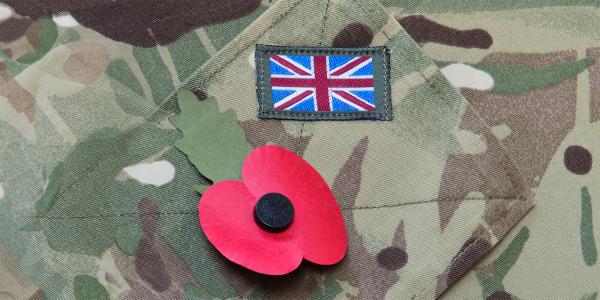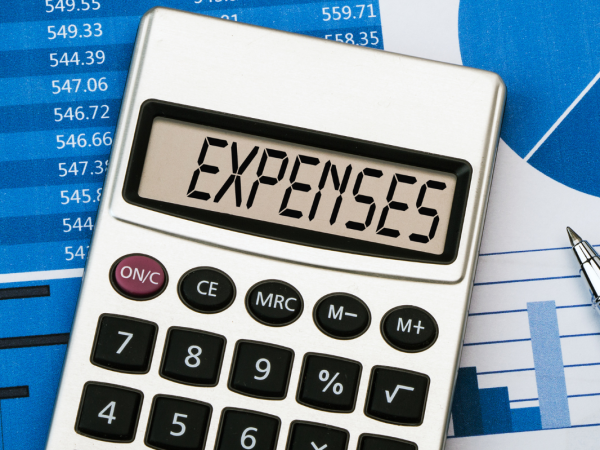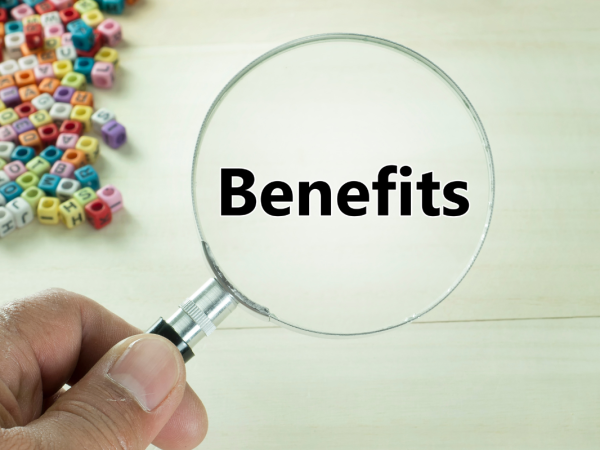Armed forces: special allowances and expenses
In addition to your regular pay, the armed forces also pay some of the costs you incur as a result of doing your job. Here we look at the tax implications of these additional payments.

Content on this page:
Introduction
If you are in the armed forces, you might receive payments in addition to your regular pay to cover certain costs you incur. The armed forces do this by:
- paying you a cash allowance, or
- reimbursing you for the expenses if you have paid for these yourself, or
- paying the cost directly to the supplier of the services or the goods.
All the allowances and expenses that you might be entitled to receive are set out in a Ministry of Defence document JSP 752 called “Tri-Service Regulations for Expenses and Allowances”. You will find a copy of it on the Defence intranet or on GOV.UK.
You may also receive various non-cash employment benefits, for example accommodation for you and your family and the costs of the utilities due in respect of this accommodation. The provision of Service Family accommodation is set out in the Ministry of Defence document JSP 464 “Tri-Service Accommodation Regulations”. Again you will find a copy of it on the Defence intranet or on GOV.UK.
Tax and NIC
Some of the allowances and expenses that you will receive from the armed forces are specifically exempt from tax and National Insurance contributions (NIC). This is either by law or because of special agreements between HM Revenue & Customs (HMRC) and the armed forces.
In other cases, where there is a tax and/or NIC liability, the armed forces have decided that they should pay this on your behalf. The armed forces pay this tax/NIC directly to HMRC at the end of each tax year.
There are a few allowances where you do have to pay the tax/NIC yourself. You can find out more about these and how you pay the tax/NIC below.
How to pay tax and NIC on allowances
There are some allowances where you have to pay the tax/NIC yourself. The usual way that you pay the tax and NIC due on these allowances is through the payroll. The allowance is included in your payslip in the same way that your basic pay is, and tax and NIC is automatically calculated and deducted.
Loans
If you have received a loan from the armed forces under the Long Service Advance of Pay Scheme or Forces Help to Buy Scheme to help you buy a property for you and your family to live in, you do not have to pay interest on this loan. If this loan, together with any other loans or advances that you receive from the armed forces, is more than £10,000 a taxable benefit arises. The Joint Personnel Administration Centre (JPAC) calculate the benefit at the end of each tax year using HMRC’s official rate of interest for beneficial loan arrangements and report the amount to HMRC.
We have information about how HMRC collect this tax on our page on paying tax on employment benefits.
Laundering uniforms
If you launder your uniform, you can claim tax relief for the costs of this. You can read more about this on our page on employment expenses.
Armed services personnel are entitled to an annual flat rate expense allowance (FREA) to cover the cost of laundering uniforms. This allowance should be given automatically by JPAC every pay day through your payroll. The only claim you need to make is if you want to claim for costs in excess of the standard allowance (Royal Navy £80; others £100, as per GOV.UK). If you wish to make such a claim you will need proof of the costs and then make a claim using form P87. There is an example showing how to complete form P87 on our page Form P87: tax relief for employment expenses.
There are plenty of organisations which offer to make the claim for you, but they will take a fee from any repayment you get. If you are thinking of paying a tax refund company to help you make the claim, we strongly recommend you read our guidance.
Tax relief and travel
If you use your own car for business travel the armed forces will reimburse you at the motor mileage allowance (MMA) rate. This MMA rate is lower than HMRC’s approved mileage allowance payment (AMAP) rate. You can therefore claim tax relief on the difference between the AMAP rate and the MMA rate from HMRC. You can find out how to make a claim on the page on employment expenses: using your own car.
You might also be able to make a claim if you receive MMA payments in respect of home to duty travel (HDT) or get you home travel (GYH(T)). Both HDT and GYH(T) MMA payments are always paid on a tax-free basis because of the special circumstances of armed forces service; an employee of any other enterprise would not be able to be paid or reimbursed for similar home to work travel on a tax-free basis.
You might be able to make a claim for tax relief for travel between your home and your workplace (beyond the HDT and GYH(T) MMA payment and/or for the difference between the AMAP rate and the MMA rate) – but only if you are working at a ‘temporary workplace’ as defined by HMRC. The fact the HDT and GYH(T) MMA payments are always paid on a tax-free basis (because of a specific exemption) does not mean that the place that you are working automatically qualifies as a ‘temporary workplace’ for HMRC’s purposes.
HMRC are aware that there are some companies offering to help, for a fee, service personnel to claim this relief and some of the claims may not be valid. You should check with the MOD intranet that your claim is valid. A claim might also be possible if you are using public transport and the armed forces are not paying for or reimbursing you for these costs.
Make sure that any claim you make is valid. HMRC will process the claim, without checking it, and send you a refund. They will then check the claim later on and, if they believe your claim is not valid, they will send you a demand to repay the refund back to them.
Deductions from armed forces pay
In addition to the pay and allowances that service personnel receive there are also deductions taken from their total cash remuneration. Normally these deductions are taken from your net pay which means that you are not getting any tax relief on them. Net pay is your gross pay plus allowances minus your tax and NIC. The main items to consider are accommodation and food but we mention other deductions too.
- Accommodation
-
The basis on which the armed forces provide you with accommodation and associated services is set out in the Ministry of Defence (MOD) document JSP 464 “Tri Service Accommodation Regulations”. Service personnel do not have to pay any tax in respect of the accommodation provided to them as it is job related and therefore exempt from tax.
You must contribute towards the cost of the accommodation. Details of these contributions, generally known as charges, are set out in Volume 3 of the MOD document JSP 754 “Tri-Service Regulations for Pay and Charges” that you can access via the Defence Intranet.
The accommodation charge includes a contribution towards water, sewerage and furniture. If you are living in single accommodation the charge will also normally include a contribution towards the cost of fuel and light. If you have access to a garage or similar then you may have to pay a charge for this.
If you live in family accommodation and gas and/or electricity is provided via an armed forces supply, then you will have to pay a separate fuel and lighting charge. If the utility supplier invoices the property separately you will settle these bills directly.
In addition to the accommodation charge, service personnel contribute in lieu of council tax (CILOCT). The amount of this contribution is determined by the MOD.
JPAC deduct these charges from your net (after tax) pay.
- Food
-
Service personnel may pay a daily food charge (DFC) in respect of food provided to them at certain locations.
JPAC deduct this charge from your net (after tax) pay.
- Other deductions
-
You may choose to contribute voluntarily to various schemes. If tax relief is available, for example under the payroll giving scheme, then JPAC deduct the payment from your gross (before tax) salary and this means that you receive the tax relief automatically when you make the payment.
If you have taken out a loan under either the forces help to buy (FHTB) or the long service advance of pay (LSAP) scheme, then you will also be paying back this loan in accordance with the rules of the scheme. JPAC deduct these repayments from your net (after tax) salary.



